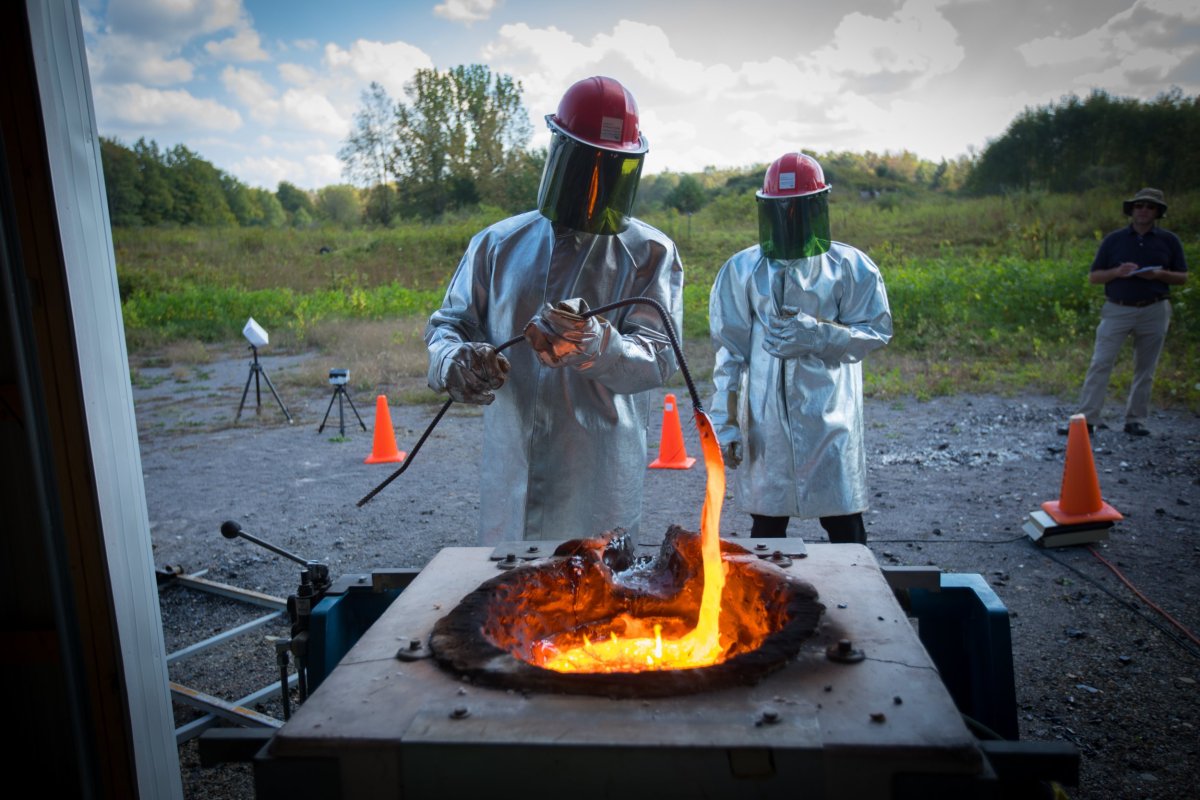Volcanologists at the University at Buffalo have blown up so-called "lava bombs" to understand why the combination of molten rock and water can be so unpredictably explosive.
In one recent case, lava from Hawaii's Kilauea volcano entered the ocean and caused a lava bomb to explode and hit a tourist boat, wrote the authors of the study published in the journal JGR Solid Earth. Images from the incident show a gaping hole in the roof of the vessel.

Read more: Humans on course to reverse 50 million years of climate change in just two centuries
But in other cases, not much happens at all: The lava simply cools on the water and forms interesting shapes, explained Dr. Ingo Sonder, co-author of the study.
"What we are doing is trying to learn about the conditions that cause the most violent reactions," said Sonder, based at the Center for Geohazards Studies of the University at Buffalo.
The study honed in on a phenomenon known as molten fuel coolant interaction. This involves a liquid source of energy meeting a liquid coolant to cause a violent reaction.
The researchers created lava bombs by heating basaltic rock up to 2,400 degrees Fahrenheit. The resulting liquid was poured into an insulated steel box, and pumped with jets of water, before a hammer smashed the hot cocktail to create an explosion. In some instances, the mixture blew up before the hammer hit.
After repeating this with one gallon measures of lava, the volcanologists found the process created a range of reactions from the mild to the more explosive, where splashes of lava rose meters into the air. When there is at least a foot of molten lava above the point at which it meets the water, this can create huge explosions, they found.
The researchers hope their experiments will help to protect communities who live near volcanoes which meet bodies of water, or sit near underground sources and therefore might be vulnerable to these unpredictable lava bombs.
Dr. Greg Valentine, expert in volcanoes and professor of geology and director of the Center for Geohazards Studies, University at Buffalo, commented: "The research is still in the very early stages. However, everything we do is with the intention of making a difference in the real world. Understanding basic processes having to do with volcanoes will ultimately help us make better forecasting calls when it comes to eruptions. "
Uncommon Knowledge
Newsweek is committed to challenging conventional wisdom and finding connections in the search for common ground.
Newsweek is committed to challenging conventional wisdom and finding connections in the search for common ground.
About the writer
Kashmira Gander is Deputy Science Editor at Newsweek. Her interests include health, gender, LGBTQIA+ issues, human rights, subcultures, music, and lifestyle. Her ... Read more
To read how Newsweek uses AI as a newsroom tool, Click here.








